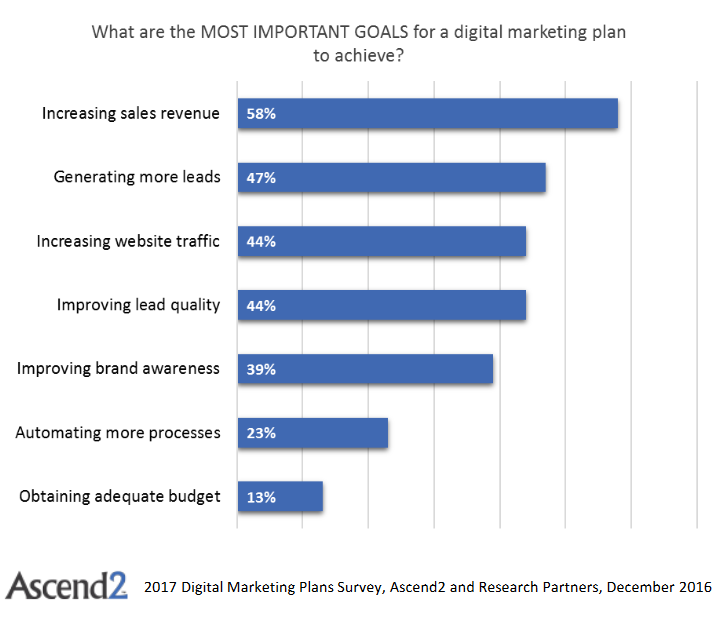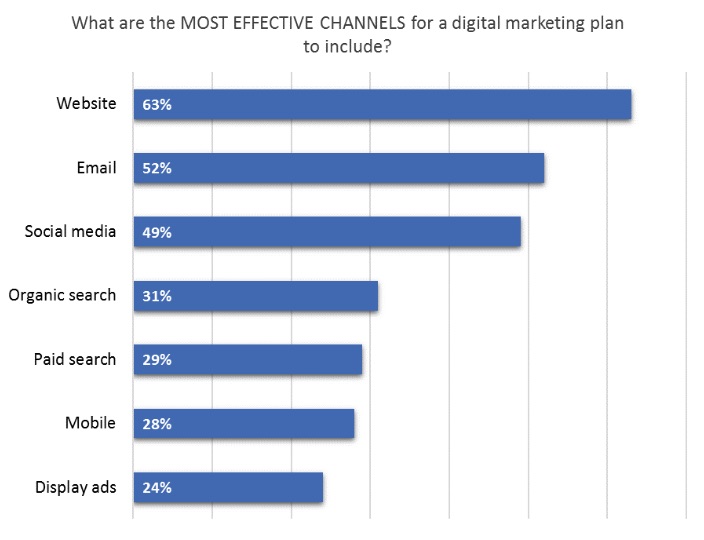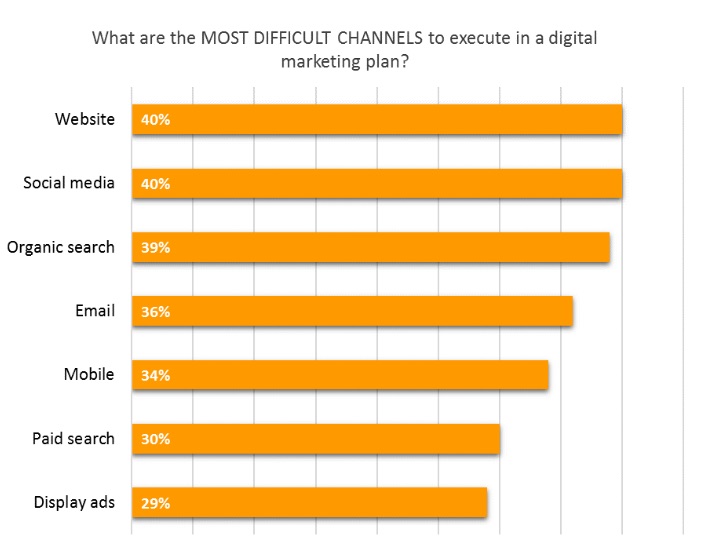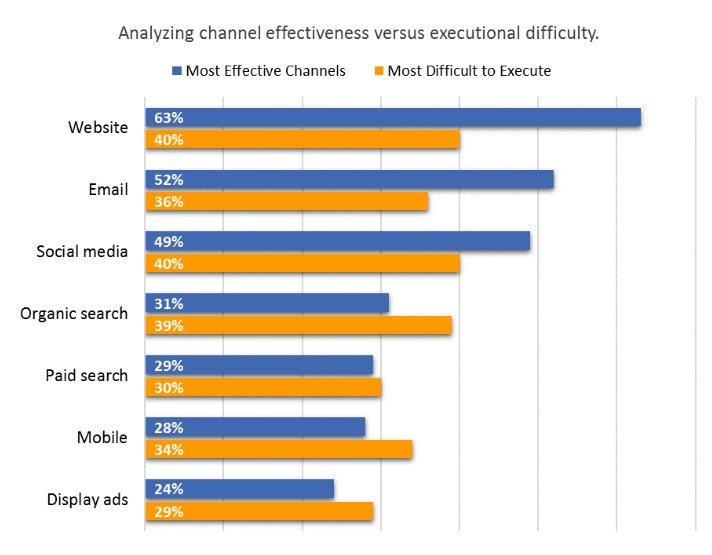26 Jan Which Marketing Channels are Worth Focusing On in 2017?
It’s no secret that in 2017, like every year, marketers want to get the biggest ROI from their advertising spend. So which channels are worth your attention? A new survey from Ascend2 took a look at the most lucrative and engaging channels of the past year to determine which ones could give you the best results in 2017.
Let’s take a closer look at what they found:
#SquadGoals
You can’t make a marketing plan without goals in mind. That’s why Ascend2 asked top level marketing professionals what their biggest goal were for this year. As you can see, although “Increasing Sales Revenue” is at the top with over half of the votes, it’s worth noting that getting more leads (and improving the quality of those leads) along with more traffic are all vying for second place:
Many times, however, these goals are the very obstacles that stand in the way of a fully nurtured, driven campaign. You can’t improve lead quality because the budget is thin. The budget is thin because sales revenue is lacking. And when sales revenue is lacking, decision-makers aren’t keen on spending more dollars just to test “if it works”.
For marketers, it’s very much a catch-22 cycle, where one has to prove that a particular channel is worth the cost, but that channel can’t perform adequately without a certain amount of spending. That’s why it makes sense to concentrate on specific channels – and if 2016 has been any indicator, many professionals aren’t looking to experiment wildly with unproven technology or pipe dream platforms:
These answers, in terms of effectiveness, should surprise no one. Where many companies fall short, however, is unifying the customer experience between these channels. How effective is it, for example, to reach someone on the company’s social media for help when the website “Contact Us” isn’t giving the customer the results they need?
Having a unified brand and plan in not just creating a campaign, but satisfying the customer at every step of their interaction with your brand is becoming more and more vital as people connect with you through all types of channels. One poor experience (on mobile, for example) and that could sour the customer on any other interactions with the brand, no matter how flawless the website or social media presence.
Effectiveness vs. Execution
And just because a particular channel is noted as being more effective, doesn’t mean it’s easy to implement. Take a look at how marketers rated the channels as far as difficulty to execute:
Almost a complete repeat of the most effective channels. The question then becomes more of a balancing game – seeing if effectiveness will win out over difficulty, and choosing those areas with moderate difficulty and high effectiveness.
Let’s take a closer look at how they match up – and how to tackle those which are most promising.
Looking at this chart is not to say that you should completely write off channels like organic search, paid search or mobile. That would be a disaster. But it does give us some insight on how overwhelming and challenging these channels are in turning a profit and generating quality leads.
That’s why it’s best to pick the low-hanging fruit – that is, to use the assets you already have.
Improving the Effectiveness of Your Website
You’ve likely invested a great deal into making sure your website does the best possible job it can do at converting prospects into customers. If you haven’t had a website audit done, now is the perfect opportunity to do so.
Find out where prospects are slipping through the cracks. What’s causing friction and preventing them from taking action? What’s making them question taking that first step? The more barriers you can remove, the more seamless their experience with you will be.
Improving the Effectiveness of Your Email Communications
There’s probably nothing worse in the world of customer acquisition and retention via email than getting canned responses or making sure the website does all the heavy lifting, only to find the email communications sorely lacking. Here again, from a first time visitor to a repeat buyer, everyone should feel that the email is just another transition from the website. Same writing style. Same tone. Same brand.
Email is that great “second chance opportunity” you have to connect with your users – so don’t waste it. Let them be clear about when and how they prefer to receive your messages. Let them easily choose what to receive and don’t make them feel “tricked” because they accidentally forgot to uncheck that box that says “sign me up for notifications”.
Yes, giving people more control of their data this way will lead some to opt-out. But those that do remain genuinely want to hear from you – so making the effort to entice and delight them should be a priority.
And remember, with email, it’s the little things that make a big difference. How many times have you gotten an email from a company, only to hit reply to clarify something and see the dreaded no-reply@example.com or get that message that “this message was sent from an unattended mailbox.” What kind of message is that sending to your prospects?
Improving the Effectiveness of Your Social Media Communications
Social media is the last on the list of marketing channels where effectiveness outweighs difficulty to implement – and yet for many businesses, social media is more of an afterthought. That’s because for those that have been in business for quite some time, the idea of communication being this “two way street” is very unnerving.
But only if you let it bother you.
The fact is, every business is going to have customers, even longtime buyers, who are upset. Simply demonstrating a proactive (and not reactive) attempt to make amends will go a long way toward building up credibility. And even if you ultimately did your best to placate that particular customer to no avail, your social media actions had a ripple effect on others who were merely watching to see what you would do.





Sorry, the comment form is closed at this time.